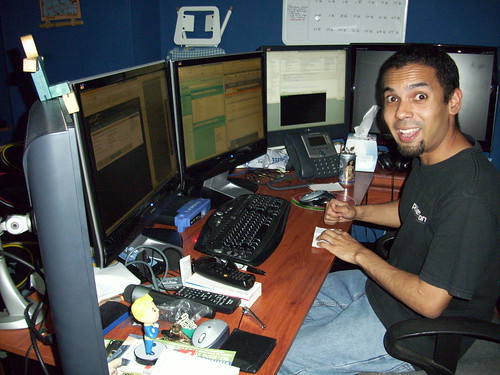Motivation is one factor that
*can* encourage people to accept and fulfill challenges, even if they don’t think they can do it. Being part of a community like Fedora, where everyone is so different but everyone is working for towards common goal gives you an awesome opportunity to closely watch how motivation works for each one. However, keeping the motivation up is not always easy.

As a community leader, it is important to identify what motivates the individuals that participates in a community
– to identify what makes them tick – and work to not lose what makes that individual motivated to keep contributing to the group towards a common goal. When we expect everyone to be motivated by the same thing or when we ignore looking for what motivates people we eventually find members resigning or burning out.
Understanding that each type of interest group can have a common motivating factor is the key that will make things move ahead. Let’s look at some easy examples:
* As a designer, occasionally receiving a t-shirt, stickers or part of the artwork that you have created will keep you motivated to keep creating artwork.
* Programmers/hackers will feel motivated (and invite friends too) if we provide pizzas and soda for a group hack night (Fedora Activity Day)
* Marketing people will feel motivated if they have resources to create amazing ideas to spread technology.
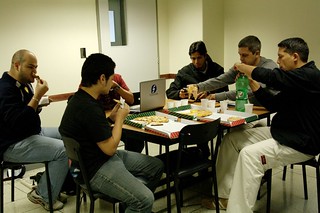
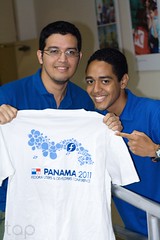

In countries with few resources or places where Red Hat support is not that easy to get these small details can make a big difference. Sometimes, we think that this is mostly a
*money* issue, and while sometimes it is, we often find that if we don’t know or explore how to spend these resources to make a difference, then we are just wasting them.
The same way a hacker designs a piece of software, or a designer does a mock-up, or a writer creates documentation, we can make a plan to keep people motivated. But our lack of patience is our own worst enemy. All of us have amazing ideas and our leaders tell us to
*just do it*. Sometimes it is easy, however, we are talking about a worldwide community here and we need to plan, organize and be prepared to turn failures into achievements. How do we prepare to motivate the world?
Even if we are a horizontal organization, we can do a pyramidal structure to determine the motivating factors of our community. Let’s start with the biggest motivating factor:
Freedom. As FLOSS users, our main motivation is to create/use/spread technology. We all agree on that.
Another factor is to determine what drives (motivates) people to want to be members of the team. Design, Program, Translation, Documentation, QA, Marketing and many more. There are teams where people join trying to learn, teach or just show/use their skills. Even if people inside each team are different, they have some common goals that can be easily determined. Designers are always trying to send a message, telling a story or turning complicated ideas into
*easy to see* graphical stories. Translators love to learn different languages and make things readable for their local teams. Hackers love to hack, create and modify things – they have an awesome purpose and create/improve new tools that will make someones life easier (sometimes even their own). Each team has their key tasks that we can work with. However, we need to remember that each team consists of people with different language skills, cultural backgrounds and therefore contributes in different ways.
There is a third motivation factor – localization. If you ask someone from North America and someone from Latin American, how easy is to get marketing goodies, you will not get the same answer. If you ask someone from Asia or Europe (for instance) how easy is to use Social Networks to spread knowledge you will get different answers. Determining each region’s features is also important. Different languages, currency, customs, designs, ideas, programs and many more things, can seem really complicated, but it is just a matter of time and dedication.
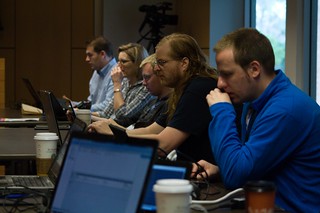
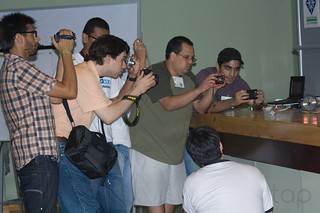
From my perspective (not perfect), as long people see that we are interested in how to make everything work better and easier, they will also be more interested in contributing. We give love to Fedora and other FLOSS projects. The same way people expect to receive
*something* even if they are too humble to say
*NO, I’m ok this way*. I’m not only referring to receiving money, trips or goodies, I’m talking about comments, visits to their blogs, help with packages and with events, potential employees/employers and a lot of things that can be acquired inside such a diverse membership. Things are out there, but ask yourself this: “Are we looking to see what is needed to be improved or are we just sitting at our computers expecting the problems get resolved by other peoples ideas?”- I’m sorry, but I’m not the kind of person that likes to wait, maybe that’s why some think that I’m too annoying and others think that I push too much. Either way, this is what makes me happy.
A couple of days ago, a friend asked me about my perspectives on the Fedora project and if I think that things can get better. For me it is easy to see where things need to fit to make things work better, but like most people we have a real life outside the team. Our time to spend on the project is limited. Fedora or FLOSS projects in general and life itself is a huge puzzle we all struggle with. The pieces has always been there, either they are being shaped by your experiences, knowledge and people but is also shaped by what people around you support. What’s funny is that we always stress about missing pieces or not finding the right ones. Our lack of patience makes us feel frustrated, (let me remind you), you don’t have a unique puzzle… There is someone out there that have a couple of pieces that will fit yours, and if you’re lucky enough, there will be more than one.

Let me use the example of the Fedora video project that I’m part of now. Fedora has been talking and pushing video projects since 2009, however, every couple of months things just stop. Thanks to a couple of really pushing guys, we are now about to start again the video projects but with a different perspective. Is this project going to work? I have no idea! But, we need to at least
*try*. Every time a contributor tell us an amazing idea and we say
*no, you can’t do that because we already tried it and it didn’t work*, you may be dumping a potential puzzle piece. Sometimes, we are so stubborn and believe that we are *the masters of the world* just because we have tried it and failed. We may be able to be the piece for someone else’s puzzle. A
*no* is not an option anymore when you open your eyes to life… Failure is a fact of life – it happens. What can we do when we have been trying for some years and yet we did not find a solution? You have two options, and even though I’m speaking only about FLOSS projects, please consider applying this to your own life:
1.- The perseverance way: You can keep trying, until you actually succeed, or
2.- The patient way: You can document and leave everything as explained as possible (even the ugly parts) so other people can continue your work someday.
Life is about patience and perseverance. I have even thought about getting a tattoo saying that. This saying
*does not* mean that you need to have both, I’m not as patient as I would like, but life is about balance and believe me: I’m sure that there is a patient/perseverance person out there that will bring *balance to your force*. Life IS about never giving up – NEVER. If you ask me why did I write this? Maybe just because the same user that I talk about this has encouraged me to do a blog post. Is my brain normal? NO! And I’m happy with that. Do we/I/You have a way to solve problems? YES! But do it. If someone says *NO* to you, ask him/her to explain why. Help save us my learning from your experience and to avoid the same mistakes. Even if we do, it still might show us a different way that our friends may have not seen.
Now, here comes the fun question: What to do now that we have a different perspective? Act, plan and put it
*into* practice. From my point of view, our community needs a bit more interest/focus on their contributors and not quite so much about the projects, because at the end, projects are nothing without people. I truly believe that things are going fantastic, but we can always improve on
*everything*. What if we take those ideas that we have (because I’m sure everyone have amazing ideas), express them on our blogs, mailing-lists and whatever comes to our mind, and encourage people to make them happen? Do it as a test, as people need a push (motivation) sometimes. We also need it but it will never happen unless you TALK!.
